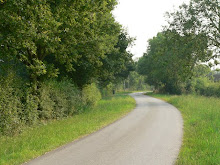When we were kids, my sister and I used to speak to each other in a private language. I believe this is not so uncommon. We also developed codes, and nicknames to describe the people, things and places around us. This habit's stuck. At home, mufflahs, wiffas, dogwiffas, snaggers, woofers, The Ladies - all have meanings of their own. A Scottish friend of mine has what he calls his Fallydoon gear. That's his term for getting dressed up to go out - the implication being that a state of inebriation can be expected where stability is compromised.
At School and University, my nicknaming became more extensive, crueller and more personal. If Impetigo Harry is reading this, he will testify to its communality too.
I'm glad to say that Cylesta is beginning to acquire her own language, in addition to the (to the landlubber) mysterious nautical differences between sheets and halyards, fore and aft, coming up and bearing away and so on. To these, we add The Palace (the forepeak), The Kilps (the helmsman's boxes), The Coffin (the starboard quarter berth), the Nono (the heads) and The Flag (which - sort of - is a flag).
These mean that she is not a thing, but a vessel of meaning, as well as of mariners.
Things are going the right way.
Friday, 4 July 2014
Subscribe to:
Post Comments (Atom)


















I can indeed testify to the "communality" of the application of soubriquets. I was "Impetigo Harry". Why? Happily, not because I have ever suffered from impetigo, but simply because I once (foolishly, as it turned out) mentioned in passing that a friend from my home town had once suffered a rather spectacular outbreak of said condition.
ReplyDelete